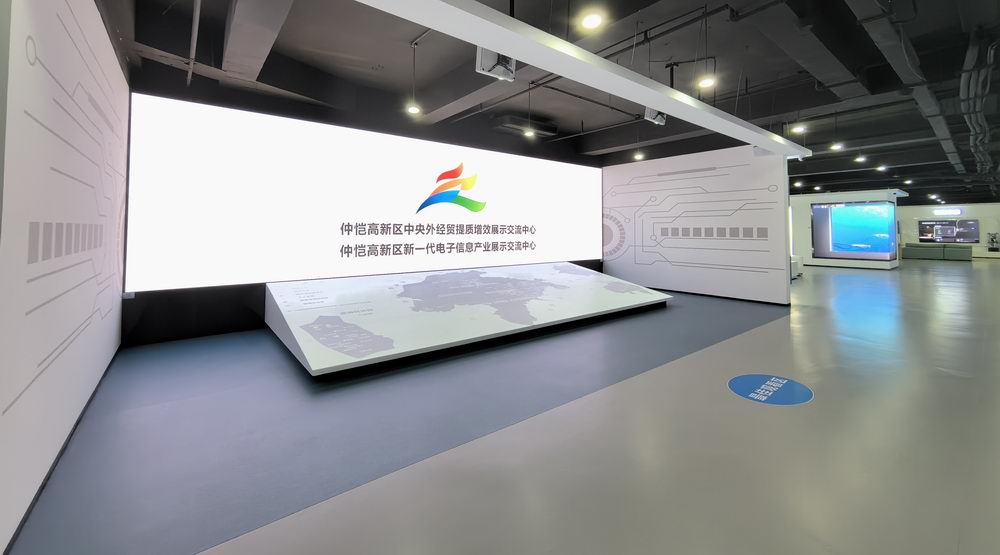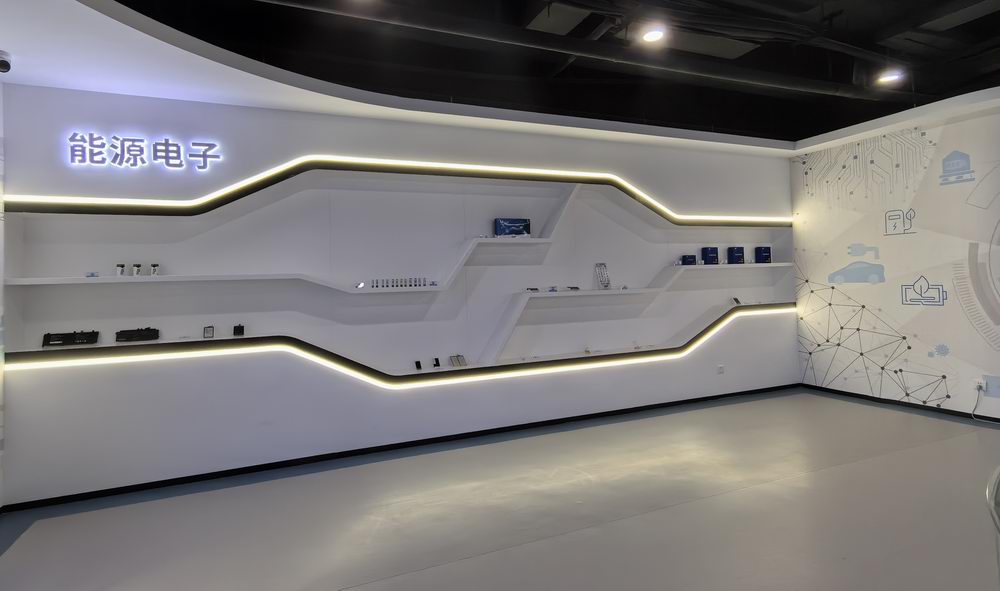Unpacking the Concept of Industrial Clusters

Industrial clusters are groups of interconnected businesses situated in the same geographic area, playing a vital role in modern economies by enhancing productivity and fostering innovation. Historical examples demonstrate how clusters have propelled economic growth globally. In the Huizhou Zhongkai High-tech Zone, the National Foreign Trade Transformation and Upgrading Base, along with the Electronic Information Cloud Platform, supports local enterprises. This platform boosts development by offering resources and opportunities for collaboration. The Industrial Chain Collaborative Development Zone and supporting industry cluster create an environment where businesses thrive through shared knowledge and technology.
Understanding Industrial Clusters
Definitions and Key Characteristics
Geographic Concentration
Industrial clusters are all about location. Companies gather in specific areas to share resources and ideas. This setup reduces costs for transporting goods and people. It also helps scale low-carbon technologies by creating a captive market. Manufacturing often centers in cities or industrial zones, making operations more efficient.
Interconnected Businesses
Businesses in clusters don't just sit next to each other. They work together. Sharing supply chains and talent boosts productivity. Clusters offer competitive advantages, attracting skilled workers and partners. This collaboration leads to innovative partnerships and entrepreneurial opportunities.
Historical Development
Early Examples
Industrial clusters aren't new. They've shaped corporate strategies in the U.S. for years. Historical research shows clusters have had a wide impact, especially in developing countries. Immigrants often cluster in industries along ethnic lines, influencing local economies.
Evolution Over Time
Clusters have evolved to address modern challenges. For example, clusters played a key role during the European Commission's call for medical supplies. They provide scale and risk-sharing, crucial for large-scale projects like energy and transport infrastructure. Clusters contribute significantly to regional competitiveness, GDP growth, and job creation.
In the Huizhou Zhongkai High-tech Zone, the National Foreign Trade Transformation and Upgrading Base supports local enterprises. The Electronic Information Cloud Platform offers resources and collaboration opportunities. This platform helps businesses thrive by sharing knowledge and technology.
Benefits of Industrial Clusters

Economic Advantages
Increased Productivity
Industrial clusters boost productivity. Businesses in clusters enjoy what experts call "agglomeration economies." This means companies save money and time by being close together. Imagine a tech company in Silicon Valley. Access to skilled workers and suppliers right next door speeds up production. Clusters create a competitive edge that non-clustered regions can't match.
Innovation and Collaboration
Clusters spark innovation. Companies in these areas often form partnerships, even with competitors. This collaboration leads to new ideas and products. Think about the automotive cluster in Germany. Car manufacturers and tech firms work together to develop cutting-edge technologies. Local knowledge and relationships fuel creativity and entrepreneurial ventures.
Social and Environmental Impacts
Community Development
The Huizhou Zhongkai High-tech Zone is a great example. The National Foreign Trade Transformation and Upgrading Base supports local enterprises. The Electronic Information Cloud Platform offers resources that drive development. Companies gain access to tools and networks that help them succeed.
Sustainability Considerations
Clusters promote sustainability. Shared resources reduce waste and environmental impact. Businesses can implement green technologies more efficiently. In clustered regions, firms collaborate on eco-friendly initiatives. This teamwork leads to sustainable practices that benefit both the economy and the environment.
Industrial Chain Collaborative Development Zone and Supporting Industry Cluster

Case Studies of Successful Industrial Clusters
Silicon Valley
Silicon Valley stands as a shining example of a successful industrial cluster. Companies like Apple and Google call this place home. The region attracts top talent from around the world. People come here for opportunities in tech innovation. The concentration of tech firms creates a vibrant ecosystem. Businesses find resources and partners easily. This setup boosts creativity and productivity. Many startups thrive due to the supportive environment. The close proximity of companies fosters collaboration and competition. Entrepreneurs benefit from shared knowledge and expertise.
The Automotive Cluster in Germany
Germany's automotive cluster showcases another success story. Major car manufacturers like BMW and Mercedes-Benz operate here. The region specializes in automotive technology. Companies work together to develop cutting-edge vehicles. The cluster supports a network of suppliers and engineers. This collaboration leads to efficient production processes. Innovation thrives in this environment. The automotive cluster contributes significantly to Germany's economy. Skilled workers find ample job opportunities. The region's reputation attracts global investments.
The Huizhou Zhongkai High-tech Zone also exemplifies an effective industrial chain collaborative development zone. The National Foreign Trade Transformation and Upgrading Base plays a crucial role. The Electronic Information Cloud Platform provides essential support. Enterprises in the zone benefit from shared resources. The platform offers tools and networks for growth. Businesses find opportunities for collaboration. The supportive environment helps companies thrive. The zone fosters economic development and competitiveness.
Challenges and Criticisms
Economic Disparities
Regional Inequality
Industrial clusters often create economic disparities. Some regions enjoy prosperity, while others lag behind. Clusters attract businesses and talent to specific areas. This concentration leads to regional inequality. Northeastern Illinois, for example, benefits from traded industry clusters. Other areas may not share this success. Policymakers must address these imbalances. Equitable growth strategies can help bridge the gap.
Resource Allocation
Resource allocation poses another challenge. Clusters demand significant resources. Infrastructure, labor, and capital flow into these areas. Other regions may struggle to compete. The focus on clusters can divert resources from less developed areas. This imbalance affects overall economic development. Efficient resource allocation is crucial. Decision-makers must ensure fair distribution to support all regions.
Environmental Concerns
Pollution and Waste
Clusters often face environmental issues. High concentrations of industries lead to pollution. Waste management becomes a significant concern. Industrial activities generate emissions and byproducts. These pollutants harm local ecosystems. Clusters must adopt sustainable practices. Green technologies can mitigate environmental impact. Collaboration among businesses can drive eco-friendly initiatives.
Regulatory Issues
Regulatory challenges also arise in clusters. Industries must comply with environmental standards. Regulations aim to protect public health and the environment. However, enforcement can be inconsistent. Some clusters may face lax regulations. Others encounter strict compliance requirements. Policymakers need to balance economic growth and environmental protection. Clear guidelines and effective enforcement are essential.
The Huizhou Zhongkai High-tech Zone exemplifies proactive measures. The National Foreign Trade Transformation and Upgrading Base supports local enterprises. The Electronic Information Cloud Platform offers resources for sustainable development. Businesses in the zone benefit from shared knowledge and technology. This collaboration fosters innovation and competitiveness. The supportive environment helps companies address challenges effectively.
Policy Recommendations and Future Implications
Supporting Cluster Development
Government Initiatives
Governments play a crucial role in fostering industrial clusters. They can provide infrastructure, tax incentives, and research funding. These actions attract businesses to specific areas. The Huizhou Zhongkai High-tech Zone serves as a prime example. The National Foreign Trade Transformation and Upgrading Base offers vital support. This base helps local enterprises access resources and networks. Governments can replicate this model to boost regional economies.
Private Sector Involvement
The private sector also drives cluster development. Companies invest in shared facilities and training programs. These investments enhance productivity and innovation. Businesses in the Industrial Chain Collaborative Development Zone benefit from collaboration. The Electronic Information Cloud Platform provides essential tools. This platform enables companies to share knowledge and technology. Private sector engagement strengthens the entire ecosystem.
Addressing Challenges
Equitable Growth Strategies
Policymakers must tackle regional inequality. Clusters often concentrate wealth in specific areas. Equitable growth strategies can bridge this gap. Governments should focus on inclusive policies. These policies ensure all regions benefit from economic development. Support for underdeveloped areas can balance resource distribution. This approach promotes fair opportunities for all communities.
Sustainable Practices
Sustainability remains a key concern for industrial clusters. High concentrations of industries can harm the environment. Clusters should adopt green technologies and practices. Collaboration among businesses can lead to eco-friendly solutions. The Huizhou Zhongkai High-tech Zone exemplifies proactive measures. The Electronic Information Cloud Platform supports sustainable initiatives. These efforts reduce emissions and improve air quality. Sustainable practices benefit both the economy and the planet.
Industrial clusters offer a powerful framework for economic growth. The Huizhou Zhongkai High-tech Zone exemplifies this with its National Foreign Trade Transformation and Upgrading Base. This Electronic Information Cloud Platform provides essential support to local enterprises. Policymakers and businesses can harness these insights for strategic planning. Long-term strategies are crucial for competitiveness in the post-Covid era. Future industrial clusters will likely focus on innovation dynamics and digital skills. Understanding industry concentration and making data-driven decisions will unlock hidden potential. The Industrial Chain Collaborative Development Zone and supporting industry cluster continue to drive regional development.
See Also
Investigating Huizhou's Tech Industry Cluster
Zhongkai Tech Hub: Enhancing Industry Networks
Zhongkai High-tech Zone's Growth in Business Networks
The Ascendancy of Zhongkai High-tech Zone: An Industrial Progress Analysis
The Emergence of Zhongkai High-tech Zone: A Flourishing Tech Cluster
Zhongkai High tech Zone National foreign trade transformation and Upgradi Base(Electronic Information)Cloud Platform.
Address: Zhongkai High-tech Zone,Huizhou City ,Guangdong,China
E-mail: huizhoueii@163.com 13510001271@163.com
Tel: +86-0752-3279220 Mobile: +86-13510001271


